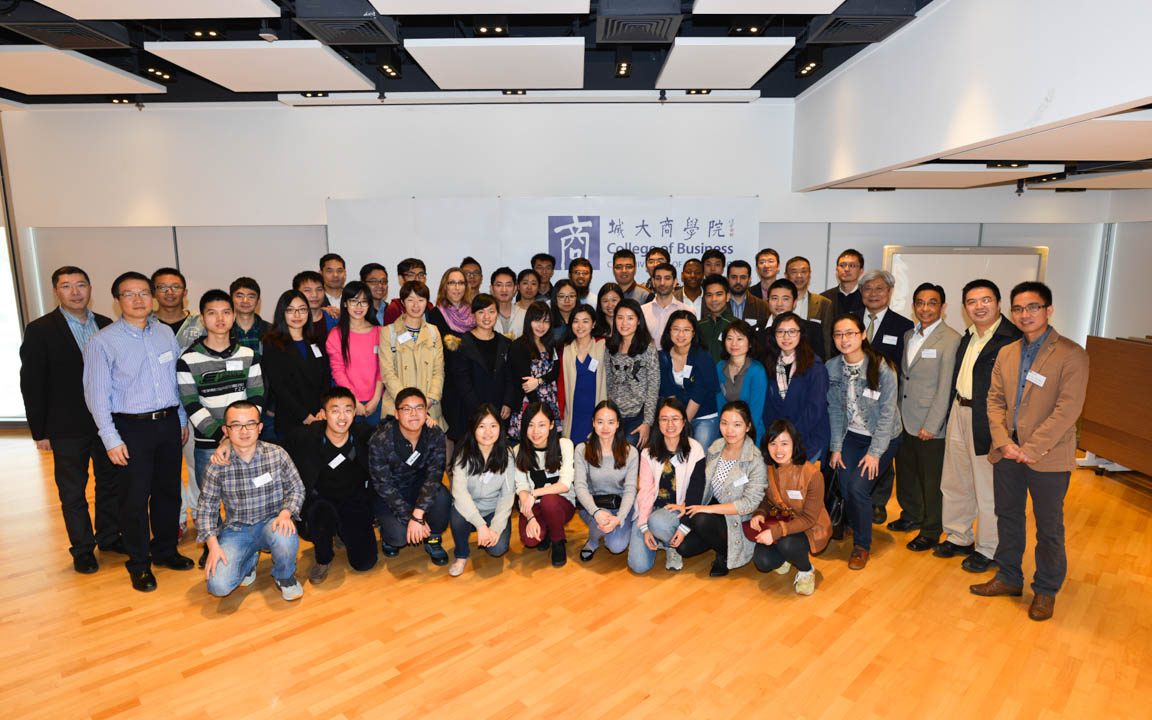Dr Ye Lu is Assistant Dean of College of Business PhD programme and Associate Professor in the Department of Management Sciences. Dr Lu received a PhD in operations research from MIT in 2009. His research interests include supply chain management, revenue management, financial engineering and nonlinear optimization. Here he talks about his priorities as Assistant Dean of the PhD Programme.
What have been your strategic priorities as Assistant Dean of the PhD Programme?
To have a successful programme, we need to focus on three key aspects: admission, training and placement. Admission is to recruit best students who are self-motivated, smart and hardworking. We provide them a solid training by offering PhD courses both methodology or foundation courses and advanced topics, set rigorous qualifying exams, and offer careful research supervision. Placement is the outcome or the purpose of the programme. We give necessary support to our final year students for excellent placements.
What are potential PhD students looking for?
In the past two years, I have had a lot of communication with prospective students. This is mostly to find whether we have a good match for each other. The purpose of our PhD programme is to train students and place them in faculty positions in world-class research universities. Students need to have the right motivation to be admitted into our programme. Meanwhile, during these communications, we explain to prospective students why and how we can help them to achieve this goal.
“ Our PhD programme places students in world-class research universities ”
How would you characterize the supervisory relationship at PhD level?
If you ask me why the College of Business at CityU can have a successful PhD programme, above all else I would like to say "We have a group of great faculty members who publish in top journals and are willing to supervise PhD students." At the college level, we provide more resources for these faculty members to reward their great work. We also build a culture and value system of encouraging research active faculty members to take PhD students.
Where do our PhD candidates come from?
The majority of our PhD students come from mainland China. This is because we can attract many excellent applicants from top universities in mainland China every year. On the other hand, the number of international students in our PhD programme has been increasing over the past years. We welcome more international students to join us in the future. We also admit students who are originally from mainland China but received their bachelor or master degrees overseas. We believe that all of these can contribute culture diversity to this programme.
What is the time frame for students to complete their PhD?
The College takes around 30 PhD students each year. We are more interested in quality than quantity. UGC usually gives three or four years' financial support for students to complete their PhD studies. We can provide additional support to students who have research potentials by offering them studentship extensions or postdoctoral fellowships.
How important is placement of our successful PhD graduates?
The purpose of our PhD programme is to have long-term and profound impacts on the academic community by placing our PhD graduates in worldclass research universities. We have had many successful placements at this level of universities all over the world including the US, UK, Europe, Canada, Australia, Singapore, and certainly China. We will continue providing necessary support to our PhD students for great placements.
How do you compare research studies today and those at your time?
If we compare today's world with that of 15 years ago when I first became a PhD student, we can see that the business world has changed rapidly. The advancement of technology has created many new business models and made information much easier to access. On the other hand, companies are facing more serious challenges to survive and develop in a global market. All of these provide exciting research opportunities to conduct business studies.
What challenges do you see ahead?
If the College wants to be a leader and stay at the top for PhD education, it will never be an easy task due to stiff competition, both regionally and worldwide. Competition for the best students in admission and faculty positions in placement will always exist. However, we like competition because it can help us to continuously improve ourselves in the processes of admission, training and placement. As long as we always put students' interests first and maintain a high standard for our PhD programme, I am confident that we can make a great contribution to business PhD education.

